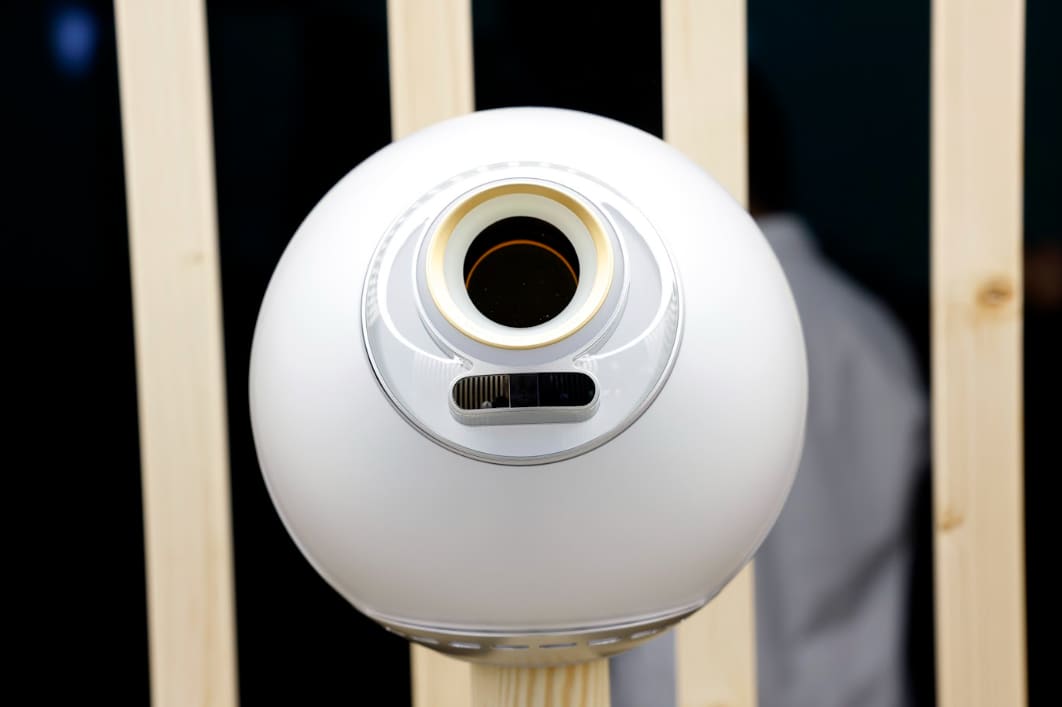
Sam Altman’s World to Launch Iris-Scanning Orb Services in the UK Starting June 12

 :
| Updated On: 09-Jun-2025 @ 3:05 pm
:
| Updated On: 09-Jun-2025 @ 3:05 pmSHARE
OpenAI CEO Sam Altman’s other venture, World, is set to launch its biometric identity verification services in the United Kingdom starting June 12 in London, with plans to expand to cities like Manchester, Birmingham, Cardiff, Belfast, and Glasgow over the coming months. This marks World’s entry into the UK market following its recent expansion in the United States, where it opened retail stores in six cities, including Austin, Atlanta, Los Angeles, Nashville, Miami, and San Francisco. World currently boasts over 13 million verified users and aims to scale its services amid the growing influence of AI technology.
World uses a unique spherical eye-scanning device called the Orb, which scans people’s irises to authenticate human users. This technology is designed as an alternative to conventional bot prevention measures such as CAPTCHA and facial recognition. The Orb helps distinguish real humans from AI bots and prevents the misuse of AI-generated deepfakes by scanning a person’s face and iris. Once scanned, the Orb generates a unique code that serves as a World ID, confirming that the individual is a verified human rather than an AI bot. Users who opt for iris scanning and verification also receive a reward in the form of World’s cryptocurrency token, WLD. The World ID can be used to sign into various applications, including popular platforms like Reddit, Discord, and Minecraft.
Originally known as WorldCoin, the project is founded on the belief that in the future, distinguishing humans from AI bots on the internet will become increasingly difficult. The Orb technology addresses this challenge by providing a reliable and secure method for biometric verification. Since its launch in 2021, World has faced privacy concerns, but the company insists it takes these seriously by encrypting biometric data collected from users and deleting the original data to ensure security. Unlike centralized cloud storage, World’s verification system operates on a decentralized network made up of users’ smartphones, which enhances data privacy and security.
The demand for World’s Orb technology is rising, especially among enterprise users and government clients. This demand has been fueled by increasing concerns about AI-driven fraud, particularly targeting banks and financial institutions. Adrian Ludwig, chief architect of Tools for Humanity (a key contributor to World), emphasized that the threat of AI misuse is no longer theoretical but a real issue impacting people daily. He highlighted that governments, including the UK, are engaging with World to explore how the technology can improve identity infrastructure and help reduce fraud.
World is in discussions with regulatory bodies like the UK’s Information Commissioner’s Office, which oversees data protection, to ensure compliance and address regulatory concerns. Ludwig mentioned that governments are increasingly interested in adopting such biometric verification mechanisms as a way to strengthen identity systems and combat fraud effectively. He acknowledged that while questions remain about privacy, security, and risks, World has been able to provide answers and solutions that reassure stakeholders.
In summary, World’s entry into the UK market with its iris-scanning Orb technology represents a significant advancement in biometric identity verification. The technology offers a robust alternative to traditional bot prevention methods and addresses growing concerns about AI-generated fraud. By leveraging a decentralized verification network and offering incentives through cryptocurrency, World aims to build a secure, user-friendly system that can be integrated into various applications and used by governments and enterprises alike. The company’s efforts to engage with regulators and address privacy issues highlight its commitment to responsible innovation as it navigates the challenges of the AI era.
Contact Us
House. No. : 163, Second Floor Haridev Rd, near Puberun Path, Hatigaon,Guwahati, Assam 781038.
E-mail : assaminkcontact@gmail.com
Contact : +91 8811887662
Enquiry
×
Reporter Login
×